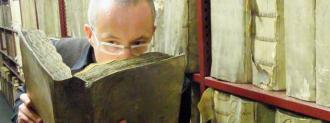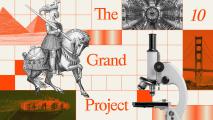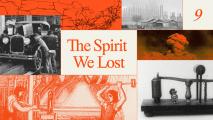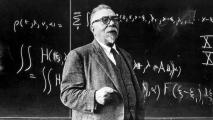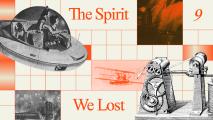You know how smells can remind you of that time or that place.
Hmmm — these weeds smell just like that backpacking trip. And how could I forget? Those mints remind me of Grandpa’s house.
Of all our senses, smell is among the most evocative of our memories. But unlike photos or artifacts that we can store in books and museums to record history, we can’t bottle up a particular scent and keep it forever.
The smells of yore are gone forever — or maybe they aren’t.
A research team has just launched an ambitious project to identify and reconstruct the most popular scents of everyday life in Europe, from the 16th century to the beginning of the 20th.
The project, called “Odeuropa,” is led by a multidisciplinary group of scholars from six European countries. Their specialties include history, art, computer vision, museology (the study of museums), and chemistry.
Using machine learning and artificial intelligence, the team will train computers to comb through endless period resources — textbooks, novels, photographs, and magazines — to find references to smells, like tobacco or perfume, in text and photos.
“Once you start looking at printed texts published in Europe since 1500 you will find loads of references to smell, from religious scents — like the smell of incense — through to things like tobacco,” team member William Tullett of Anglia Ruskin University in Cambridge told The Guardian.
The information will be cataloged in an online Encyclopaedia of Smell Heritage, reports Forbes. The project’s website describes the encyclopedia as “an archive for the olfactory heritage of Europe, enabling future generations to access and learn about the scented past.”
And — because the nose knows — it will be a historical account of the emotions and places associated with each smell.
One goal is to show how the smells, and their purpose and meanings, have changed throughout history. A rose by another name might not smell as sweet — given a different historical context. Tobacco is one example.
“It is a commodity that is introduced into Europe in the 16th century that starts off as being a very exotic kind of smell, but then quickly becomes domesticated and becomes part of the normal smell-scape of lots of European towns,” said Tullett.
Odeuropa isn’t the first modern attempt to capture smell history.
Kate McLean creates “smell maps” that record hot spots of strong smells, mapping cities like New York and Boston. And Cecilia Bembibre, a researcher at the UCL Institute for Sustainable Heritage, is working on recovering and preserving lost or endangered scents.
But Odeuropa aims to have the ability to recreate smells that don’t exist today. They anticipate the project will take three years to complete. Because of this newly documented olfactory resource, long-gone scents can be given new life, which in turn can become an important part of museum exhibits or heritage sites.
“Smells shape our experience of the world, yet we have very little sensory information about the past,” said Inger Leemans (VU University and the Royal Netherlands Academy of Arts & Sciences Humanities Cluster). “Odeuropa will dive into digital heritage collections to discover the key scents of Europe and the stories they carry, then bring them back to our noses today.”
